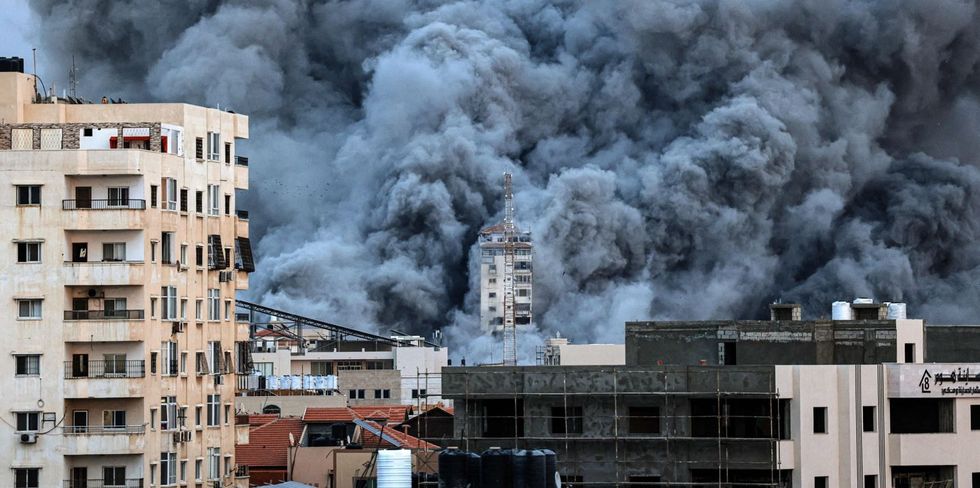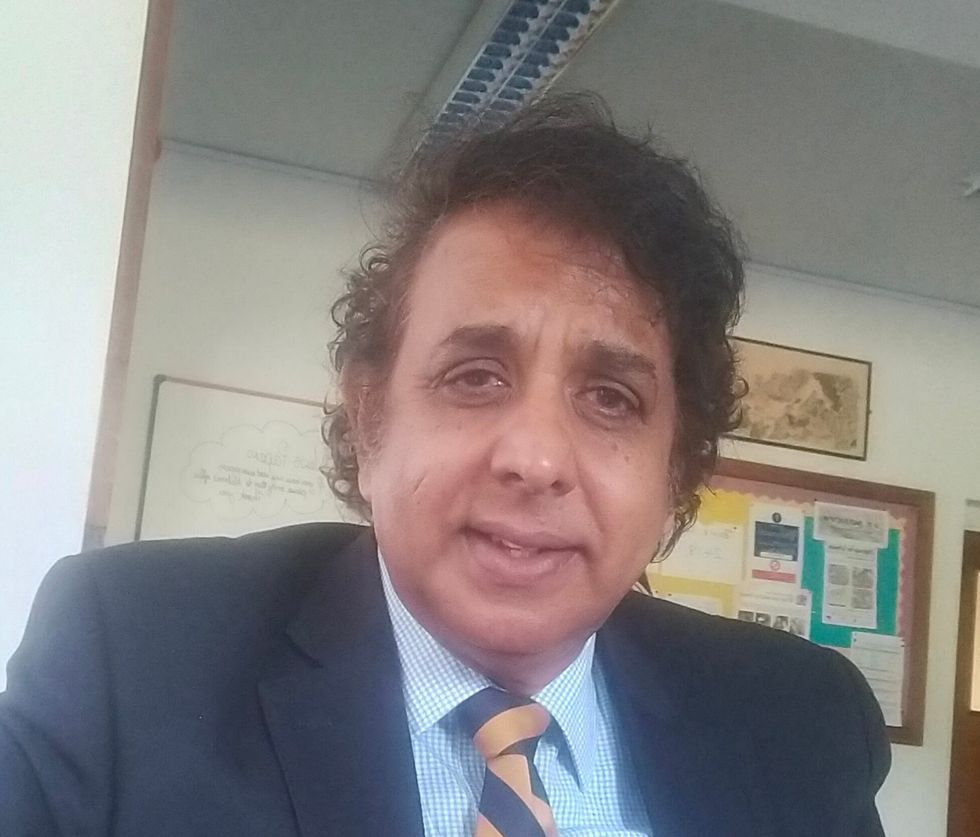ONLY a few years ago schools were proud of their every child matters policy. It was all the rage. But then, all of a sudden, without rhyme or reason, it vanished into thin air.
For some educationalists, the recent Hamas/Israel conflict is a clear-cut singularity of rhyme. It’s the reason why, in their view, many feel the former home secretary had to go. It was – and is – a simple black and white matter defined by their understanding of ontology and absolute morality. As such, there’s evidence that a few schools in places like Tower Hamlets, Glasgow, Bristol and Burton-on-Trent have given tacit approval to pupils to strike or protest for Palestine. The walk outs have even encouraged parents and teachers to join in.
Although I am not against activism per se, I do have concerns about head teachers adopting a strident political stance and thereby polarising their school community. Apart from the fact children are far too young to understand the complexities of international politics, allowing them to protest does very little to foster cohesion and harmony amongst the pupil population. Some might even argue it’s a form of child abuse or indoctrination.
I’m currently doing work in a densely multicultural, multi religious suburb of Birmingham. Until the 7th October, the atmosphere in the area had been fairly amicable where people understood and respected difference and equality.
Since then however, there’s been rumblings not only in mosques and local community cafes, but also amongst the school population where every now and then pupils let slip anti-Semitic language.

In schools where majority of pupils are from Islamic communities, it’s not uncommon for pupils to openly verbalise their anger against the reaction of Israel to the Hamas terror attack. Even a friend of mine – president of a mosque – has been virulently vitriolic in his condemnation of Israel, refusing to accept or acknowledge an opposing view without going into the realms of some unsubstantiated conspiracy theories.
Confronted with such an atmosphere, many apolitical teachers feel uncomfortable or ill-equipped in challenging anti-Jewish rhetoric that vilifies and demonises the Hebrew community. Many feel they’re sailing in disturbing, unchartered seas.
Should teachers address the geo-political situation – especially when its underlying concepts are at the heart of two historically warring factions? And if there’s no way of managing a discourse or dialogue on this subject, shouldn’t schools adopt the laissez affair policy of remaining detached and leaving well alone?
In the past I have argued that pupils should be given awareness of politics and the machinery of governance especially when it comes to subjects like those raised by David Attenborough or Greta Thunberg.
But addressing the current political conflict is not the same as climate change activism. A debate on climate change does not actively marginalise people’s belief systems nor does it alienate people on the basis of their race or creed. Hearing protestors spout anti-Semitic rhetoric over the megaphones – as many have witnessed – cannot possibly be conducive to our continuing life-long effort to promote British values of mutual respect and tolerance.
After all, it’s one thing giving pupils tools to understand how democracy works and the Western secular principles upon which we’re governed, it’s another ostracising a religious minority and permitting pupils to broadcast racist slogans, threats, and rallying war cries against them. One wonders how Jewish pupils in our neighbourhoods must feel in today’s very volatile, intimidating atmosphere of cultural antagonism, religious suspicion, and political hostility.

Educational management must rise above sectarian divide and understand the need to ensure that all pupils irrespective of their cultural or religious background feel safe not only in their vicinity, but travelling to and from school. And if that means abstaining from communal and international political matters that are devisive and likely to make a sizeable group of people in this country feel intimidated, threatened or fearful for their own safety, then so be it. There should be no rhyme or reason to propose frictions, divisions and hatred against any group or individual. Surely that’s a proper way to adhere to our values and ensure that every child really does matter.
(Dr Roshan Doug is the CEO of Perspective Education, UK. He has been working with schools and colleges for over 30 years as an education management consultant.)





 David Beckham wearing a David Austin Roses "King's Rose" speaks with King Charles III during a visit to the RHS Chelsea Flower Show at Royal Hospital Chelsea on May 20, 2025Getty Images
David Beckham wearing a David Austin Roses "King's Rose" speaks with King Charles III during a visit to the RHS Chelsea Flower Show at Royal Hospital Chelsea on May 20, 2025Getty Images









 Kurukshetra battlefield illustration
Kurukshetra battlefield illustration
 Chanakya
Chanakya  Shimla Agreement
Shimla Agreement Kargil War 1999
Kargil War 1999

 Vivid depiction of the Kurukshetra battlefield, showcasing Arjuna and Krishna in the chariot amidst the chaos of warAmazon
Vivid depiction of the Kurukshetra battlefield, showcasing Arjuna and Krishna in the chariot amidst the chaos of warAmazon
Should schools respond to the current conflict between Hamas and Israel?